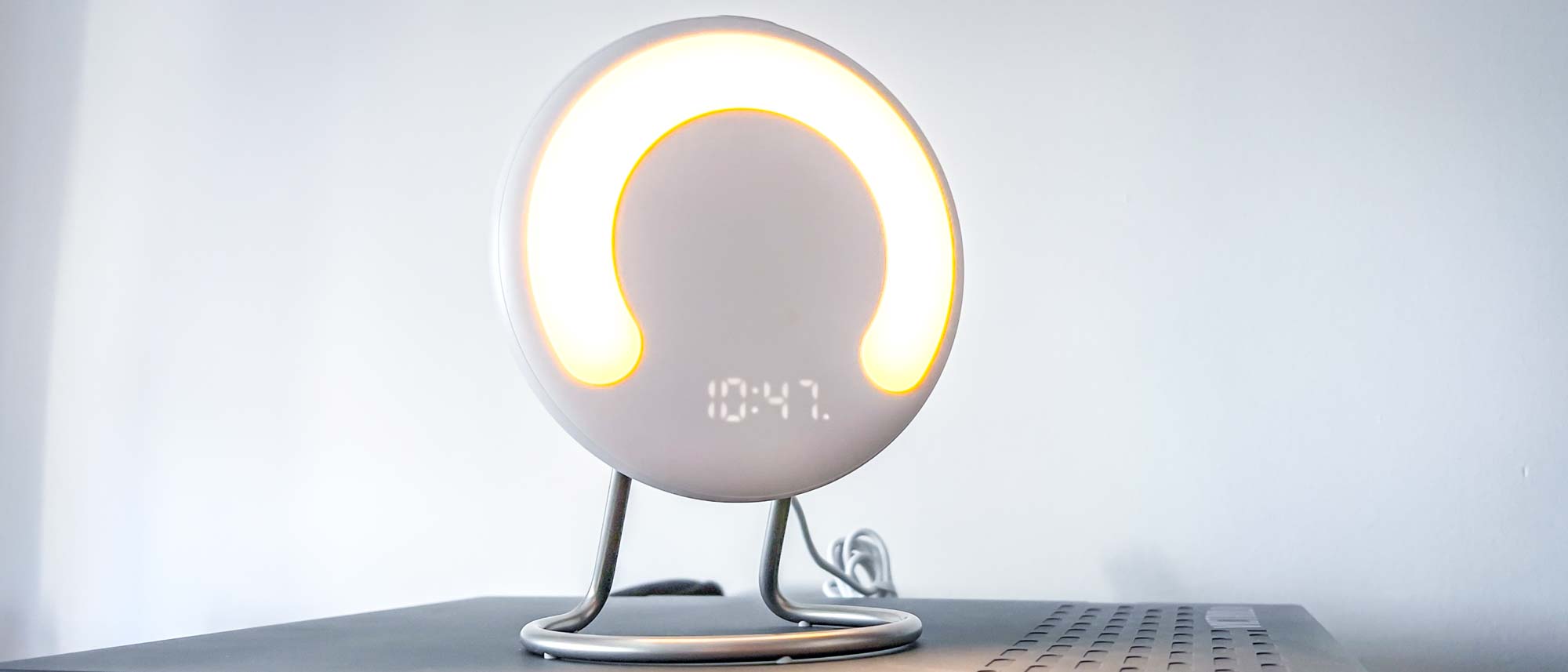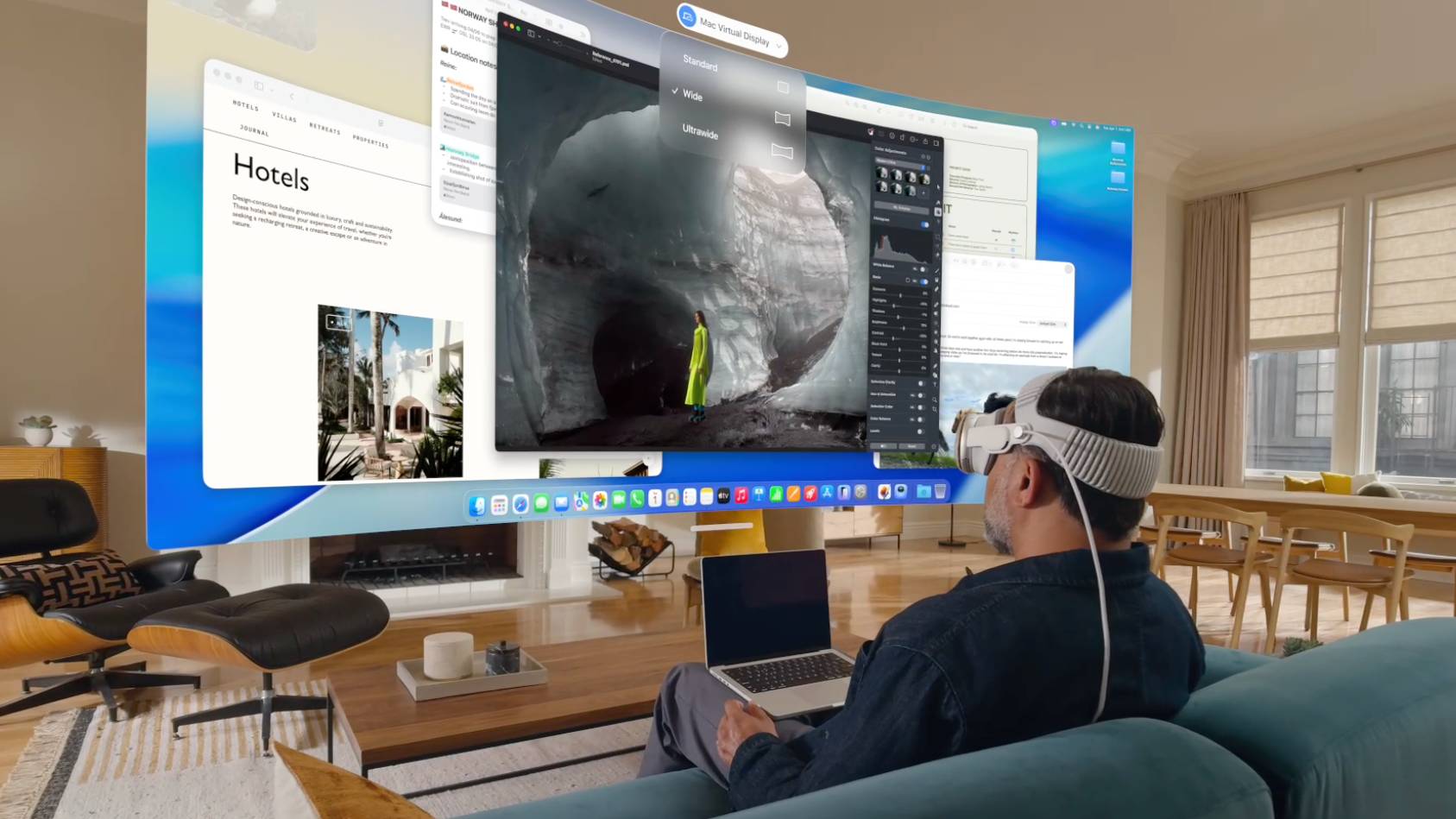Tom's Guide Verdict
Amazon Halo Rise is a contactless sleep tracker that's also a sunrise alarm clock and smart lamp. The beside device reads your environmental factors and suggests changes for better rest, while Alexa integrations offer convenience.
Pros
- +
No-contact sleep tracking
- +
Clean, minimalistic design
- +
Environmental insights can be useful
- +
Cool smart alarm feature
- +
Can be used as a reading lamp
Cons
- -
Some functionality requires separate Echo speaker
- -
Night table needs to be same height as bed
Why you can trust Tom's Guide
Though some people (including me) don't mind wear smartwatches or activity bands overnight to track sleep, there aren’t many options for tracking sleep at home without having a sensor-jammed device strapped to your body. The Amazon Halo Rise is a contactless solution for those who are interested in understanding their sleep habits, as well the environmental factors that might be impacting their quality of rest.
To see how well the $139 Halo Rise identified my sleep cycles and trends based on micro-movements and ambient conditions, I carried out this Halo Rise review by sleep tracking with the device for two weeks. In that time, I learned some things that my smartwatch can't tell me — specifically, what changes I could make to my bedroom to get better sleep. I know that's something many of us are constantly trying to achieve.
Amazon Halo Rise cheat sheet
- Amazon Halo Rise is a no-contact sleep tracker that senses micro-movements to determine your sleep stages and assign you a daily sleep score.
- It features a sunrise alarm clock, intended help you wake up slowly as the light gets brighter. You can opt to sync the sunrise alarm clock with sleep tracking to be awoken at the optimal time in your sleep cycle.
- The Halo Rise can read ambient light, light and humidity levels in the room. With this data, you might be offered suggestions to make environmental changes to the benefit of your rest.
- Halo Rise works best paired with an Alexa speaker. That way, you can ask Alexa to control the light and snooze your alarm. With a smart display, you can see your sleep score and sleep stage chart as well.
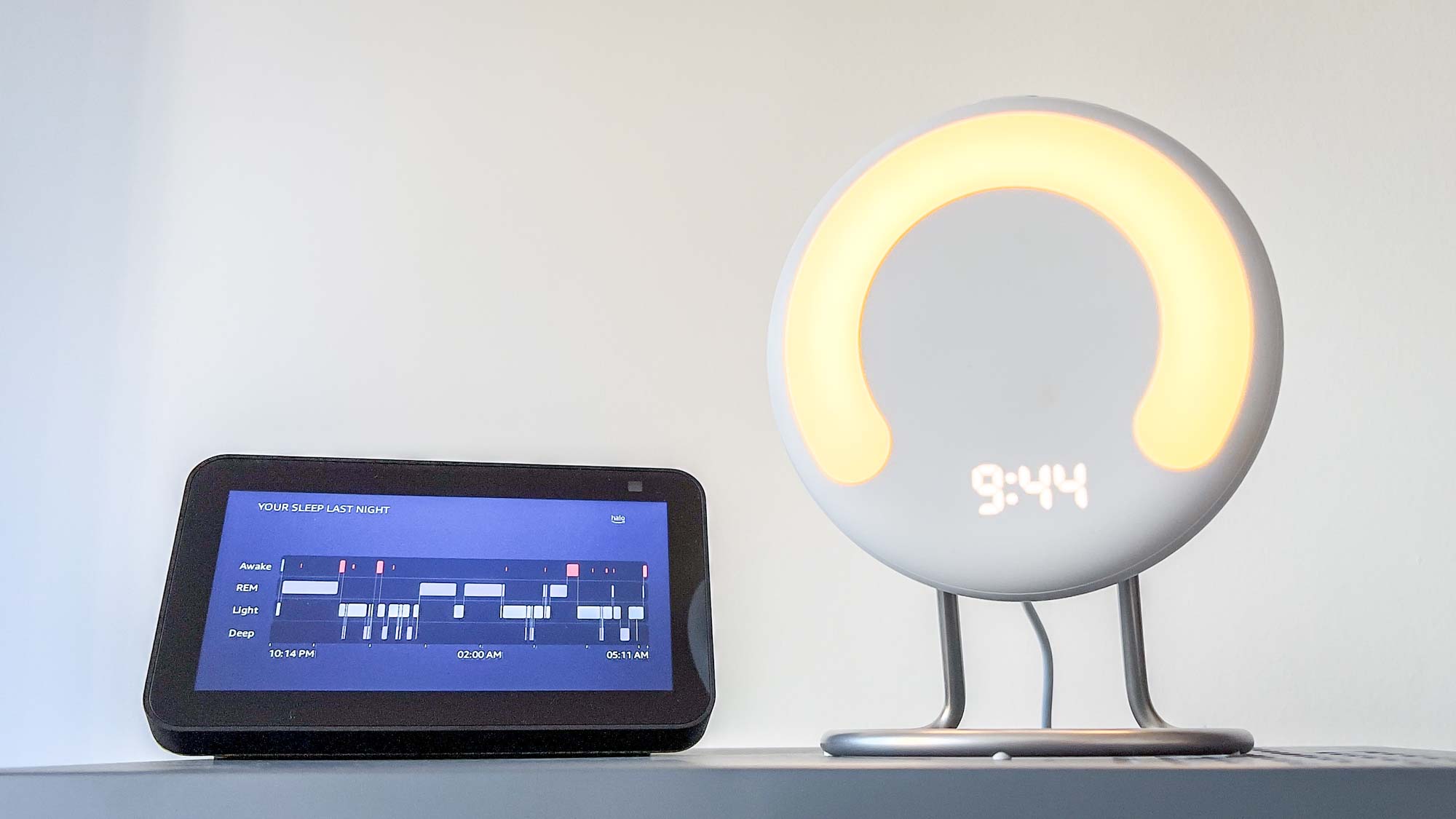
Amazon Halo Rise price and availability
Amazon Halo Rise is available as of November 21, 2022 for $139. To put the price in perspective, the sleep-tracking Google Nest Hub (2nd Gen), one of the best smart displays, costs $99. The top-rated Hatch Sunrise Alarm Clock is $129 on Amazon, but while it has a speaker built-in, it does not have sleep tracking like the Halo Rise or Nest Hub.
Using all Halo features requires a $3.99/month Halo subscription; however, most Halo Rise features are available for free. Unlike with the Halo Band and Halo View, the membership isn't necessary for the user experience.
Amazon Halo Rise review: Design
The Amazon Halo Rise is a minimalistic-looking device, so it's not one I minded leaving out on my nightside. It kind of looks like a white plate attached to a thin metal stand, and you might mistake it for some modern decor if not for the small digital display that shows the time. The clock is subtle, and its brightness changes based on ambient light — a feature also available in the Amazon Echo Dot with Clock (5th Gen) and Echo smart displays.
A semi-circle-shaped lamp lines half the Halo Rise's face. While this light is used to simulate sunrise, it also functions as a smart light. I paired the Halo Rise's light to my Alexa app so that I could use the assistant to turn the light on and off, as well as control the lamp's brightness. The warm light temperature is perfect for nighttime reading, in my opinion. The soft glow doesn't illuminate the entire room as not to disrupt someone sleeping on the other side of the bed, either.
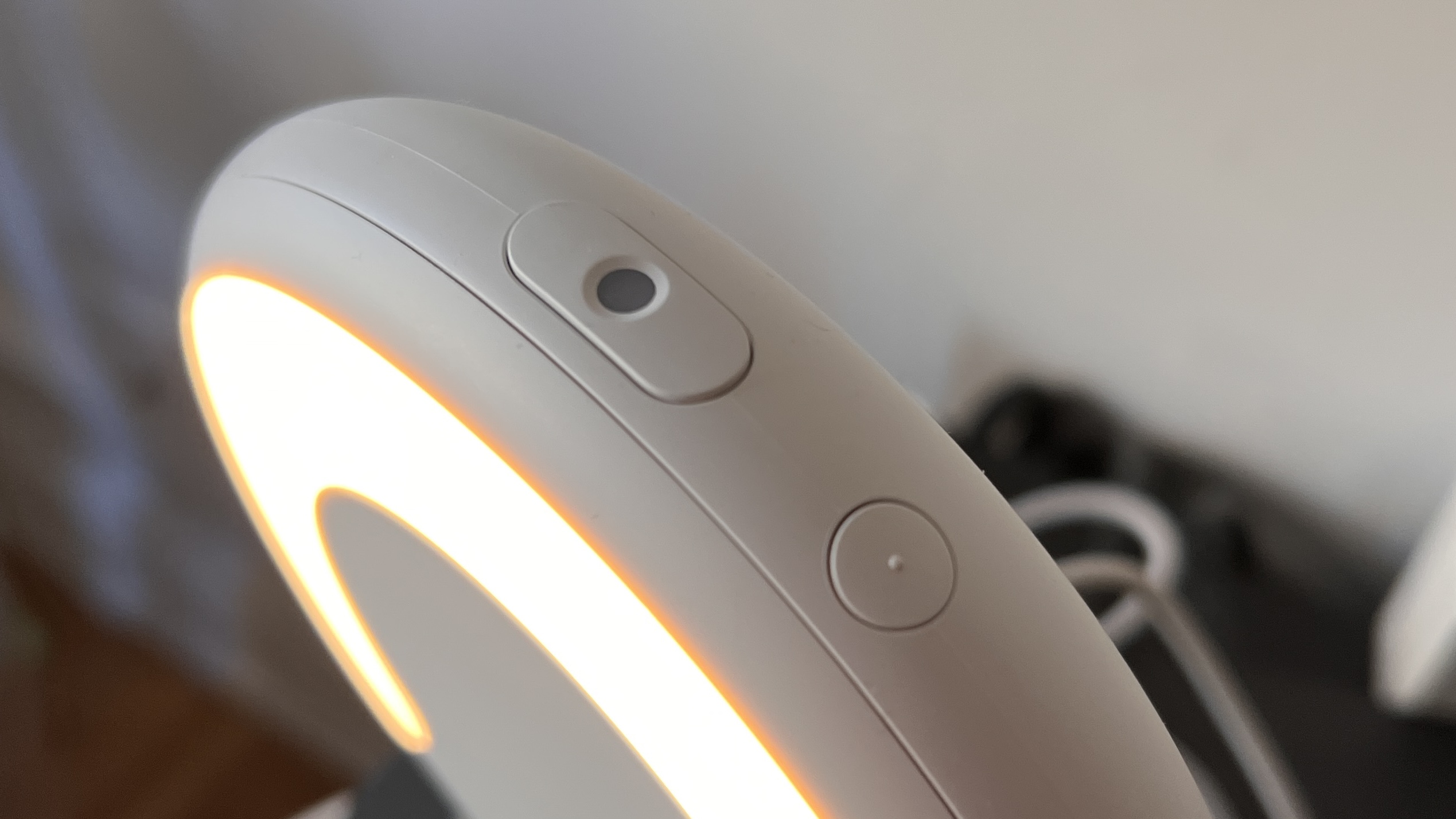
Keeping with the clean aesthetic, there are just two buttons on top of the Halo View. The larger, oval-shaped button also controls the light but can be (and in my case, was) used to snooze alarms. The smaller, circular button turns the alarm off for the day, triggers sunset simulation at night and disables sleep tracking with a long press.
Get instant access to breaking news, the hottest reviews, great deals and helpful tips.
Amazon Halo Rise review: Sleep tracking
When setting up Halo Rise, the Halo app prompted me to point it properly at my bed. In order to collect accurate data, the device needs to be angled towards your arm/chest and set up either at the same height your bed or a bit higher.
And that's pretty much all there is to it. The first night sleeping next to the Halo Rise, the device automatically initiated sleep tracking. Even though I was in bed for an hour before falling asleep, Halo Rise accurately detected the point at which I entered dreamland. In the morning, I opened the Halo app, where my data quickly populated to show me my sleep score, time asleep, time awake and my sleep stages chart. The data seemed accurate based on both my perception of my rest as well as the data collected from my Oura Ring and Apple Watch Ultra.
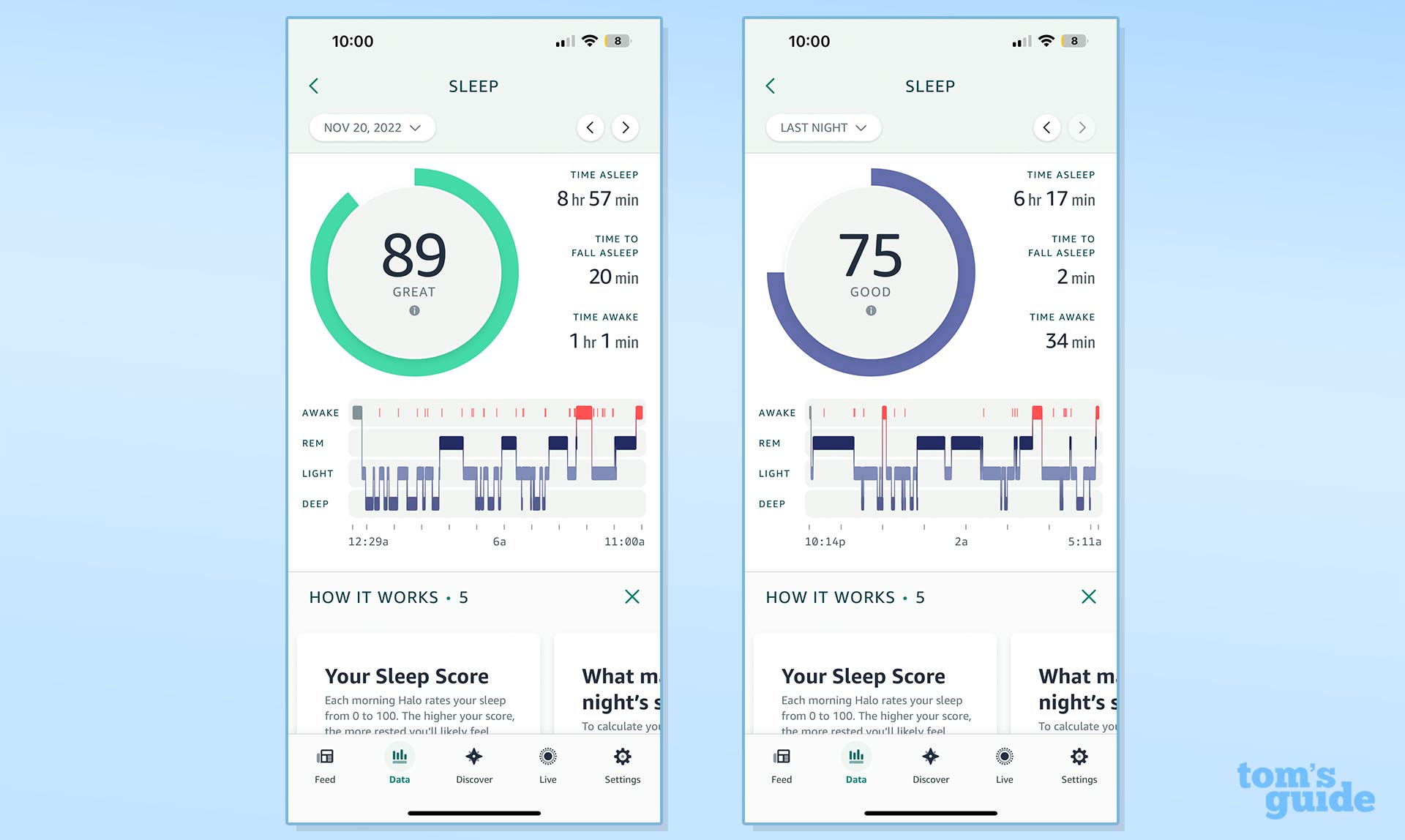
After a week of use, I saw my averages for my time asleep, time to fall asleep and time awake, in addition to averages for my sleep stages, disturbances and overall sleep efficiency. These insights let me piece together some of my behaviors that might've changed my sleep quality night-to-night. After two weeks, I could compare the week-to-week data as well. Month-to-month data will become available the longer I use it.
In the Halo app, I also perused some literature on what I could do to improve my sleep quality. Separately, the Halo Rise reads ambient light, temperature and humidity levels in the location it’s positioned. I was surprised to learn my bedroom's humidity levels are lower than the optimal range for sleep, so I actually ended up ordering a humidifier to see if it helps my rest. This is something I would've considered had not for testing Halo Rise.
Amazon Halo Rise review: Sunrise alarm clock
I've seen sunrise alarm clocks trending on social media for a while now, but I didn't get the hype until I tried Halo Rise. I'll admit, I felt skeptical at first about a sunlight simulation actually soothing me out of my slumber. The initial mornings I slept until I heard the audible alarm.
But after a week or so, I started to look forward to the early morning glow on the side of my bed. I believe it helped me feel more awake, rather that succumbing to the snooze button and drawn shades.
I also found the smart alarm feature pretty cool, which timed my sunrise with the optimal wakeup point in my sleep cycle (within a reasonable range from my alarm, of course.) For example, one morning my alarm went off at 7:51 a.m. instead of my assigned 8 a.m. time. There are studies that say waking up at the end of a sleep cycle can make you feel more rested — I'm not sure how well I was able to gauge that for myself, but I'm definitely amused by the device's intuition.
Amazon Halo Rise: Alexa features
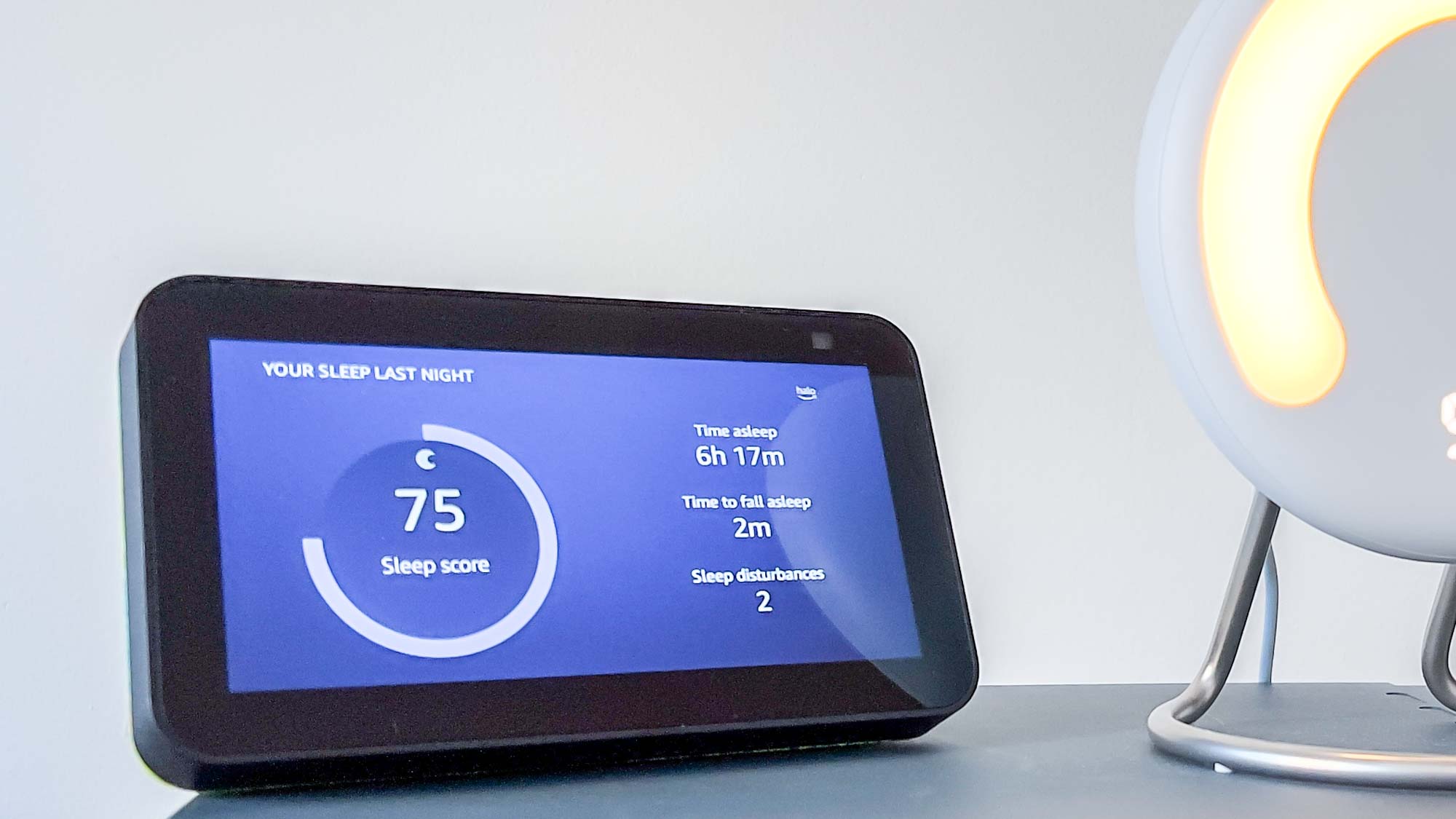
I introduced an Amazon Echo Show 5 (2nd Gen) to my nightstand so that I would have a way to ask Alexa to snooze my alarms without moving. When I would finally get out of bed, I asked Alexa to show me how I slept, and my sleep score and sleep hypnogram appeared on the display.
Now, I happen to think having an Alexa speaker or smart display is necessary for the most full-featured experience. Whether it's using voice commands to control the light or alarm, Alexa came in handy for the Halo Rise experience. What's more, I could bypass the Rise's alarm chime and opt for my Alexa speaker to play an alarm sound of my choosing. Certain light and alarm function can be added to Alexa routines, too.
Amazon Halo Rise review: Verdict
While the wearable Amazon Halo Band and Amazon Halo View are fine sleep-trackers, I think Halo Rise good solution for no-contact sleep tracking. Clearly, I'm not against using wearable sleep-trackers, but I've spoken to enough people who find wearing tech to bed uncomfortable.
Pair that with a sunrise alarm clock that can also suggest environmental changes, and it's easy to consider Halo Rise one of the most interesting sleep tech products to ever hit the market. If you're creeped out by contactless sleep-tracking, this isn't the device for you. But if you're open to trying new insights for improving your rest, you could find some solutions with Halo Rise.

Kate Kozuch is the managing editor of social and video at Tom’s Guide. She writes about smartwatches, TVs, audio devices, and some cooking appliances, too. Kate appears on Fox News to talk tech trends and runs the Tom's Guide TikTok account, which you should be following if you don't already. When she’s not filming tech videos, you can find her taking up a new sport, mastering the NYT Crossword or channeling her inner celebrity chef.





